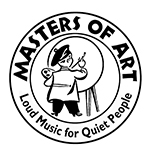18th March 2019
Singing in English is not easy, and singing in non-accented, non-regional, middle-of-the-road English is pretty well impossible. It’s to do with the vowels; they’re fine for the talking, but start to sing and they don’t fit in the mouth; you just can’t make them sound good, or put any power behind them. Italians can sing in regular Italian, and the French in normal French (except for their weird habit of adding an extra final syllable to any word ending in ‘e’) but to sing English at all, the singer has to adopt some form of accent. Almost any accent will work fine; Scots, Irish, Welsh, or Cockney can sound great, particularly for singers who talk like that as well (although this does not necessarily have to be the case. That great vocal stylist Bryan Ferry speaks without much of a North-eastern accent, but sings in broad Geordie). However, for singing Brits who don’t have some regional or ethnic identity to bring forward, the usual fall-back position is to adopt some form of American accent. American vowels are super-easy to sing, and though any actual American can spot the imitations a mile off, the majority of non-classical British vocalists subside into one of a weird variety of phony Yankee pronunciations. This normally has nothing to do with them wanting to sound like Elvis or Lou Reed, it’s a matter of acoustic necessity.
I have struggled with this problem myself. To me, my speaking voice sounds completely neutral, but other people hear definite Public School cadences. My parents, both from working-class Woolwich, and not the slightest bit snobbish, nonetheless deliberately lost their ‘common’ accents to ‘get on in the world’. They insisted that I did the same, and, in my teens, would often tick me off for coming-out with any of those Estuary inflections that became so fashionable in the Sixties.
My solution to the singing-in-English problem was to develop my natural accent into a sort of old-fashioned ‘posh’ voice to sing with, and I fixed on this quite early in my soi-disant ‘career’. It continues to work well for me, from the technical, acoustic point of view, to the extent that at least people can hear what I’m singing about. Thus it was, that from my late teenage years, I came to think of myself as singing in the character of some frightful, elderly clubland bore making his dreadful jokes in the Lounge Bar, and now, half a century later, God forgive me, I am that man, or something uncomfortably like him.
This vocal persona, also fits well with the fascination I have always had with the slang, the popular idioms, catch-phrases and demotic patterns of speech of the Nineteenth and Twentieth Centuries; ways with words that have made our language incredibly rich, diverse and flexible. My anachronistic vocal avatar can sing about something being ‘top-hole’, or ‘pisspoor’, or ‘meshugge’, or ‘the bee’s knees’, or ‘fuckin-A’, or ‘peachy-keen’, or ‘downright dis-servicable’ and sound as if he means it.


